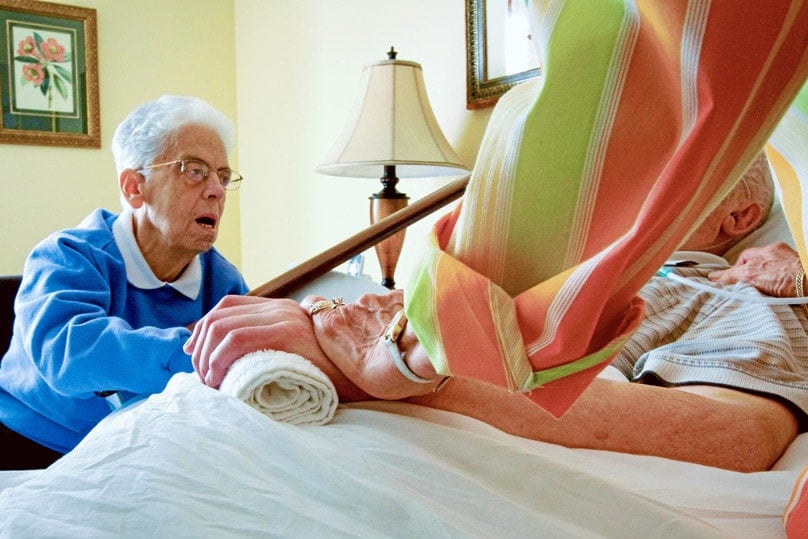
Palliative care is “limited or non-existent” for Australians who do not die from cancer – around 7 out of every 10 deaths – but from the ordinary diseases of aging.
The claim is contained in Life Before Death: Improving Palliative Care for Older Australians, a report authored by Jessica Borbasi of the Sydney-based think tank, the Centre for Independent Studies.
Cancer patients were more likely to receive palliative care because of the clinical culture and funding of oncology services, the report says; a marked contrast to what awaits the majority of Australians, who are more likely to receive “disjointed, inflexible, reactionary and non-holistic care”.
Patchy provision and inadequate access were a function of various historical cultural and institutional barriers across the health system:
“Ironically, inadequate provision of palliative care is also attributable to the inappropriate application of the ‘treat, cure, repeat’ model of acute health care that has successfully extended life, but which is not fit for purpose to deal with the new realities of modern death and dying at increasingly older ages,” Ms Borbasi writes in the report.
The average Australian lives with around four chronic diseases from the age of 65 and will likely experience around 22 years of dependency on their local GP, healthcare providers, family and friends before succumbing to death.
“In many cases, the over-medicalisation – and the depersonalisation and dehumanisation – of death will involve multiple and often lengthy hospital admissions, intensive ‘curative’ interventions, with an overall lack of acknowledgement of impending death,” the report says.
Care was likely to be determined by doctors deciding what they can do to prolong life, “rather than according to what patients and their families value in life”.
Ms Borbasi also points to the damaging impact of “the myth” that most Australians want to die at home, reinforcing the popular fear that death in a hospital is necessarily distressing, painful and undignified.
Nearly 50 per cent of Australians die in hospital, a figure that is likely to increase:
“The real problem is not dying in hospital, but death without palliative care.”
Ms Borbasi argues that turning the situation around would necessitate structural and cultural change – reorienting funding towards supporting holistic care and impressing on medical professionals the importance of meaning and not just bodily mechanics.
“The medical profession’s engagement with the task of repositioning palliative care in the health system and placing the focus on life before death should be driven by an awareness of the pressing ethical challenges associated with death and dying.
“The alternative prospect, by default, of radical changes to clinical ethics and practice will place an already underserviced and undervalued ‘old and dying’ population at greater vulnerability.”
Life Before Death: Improving Palliative Care for Older Australians is available from www.cis.org.au
